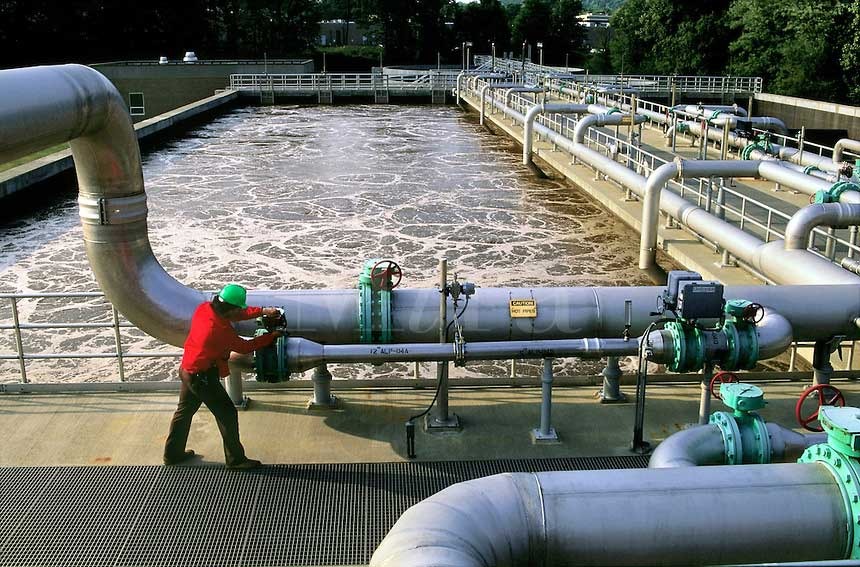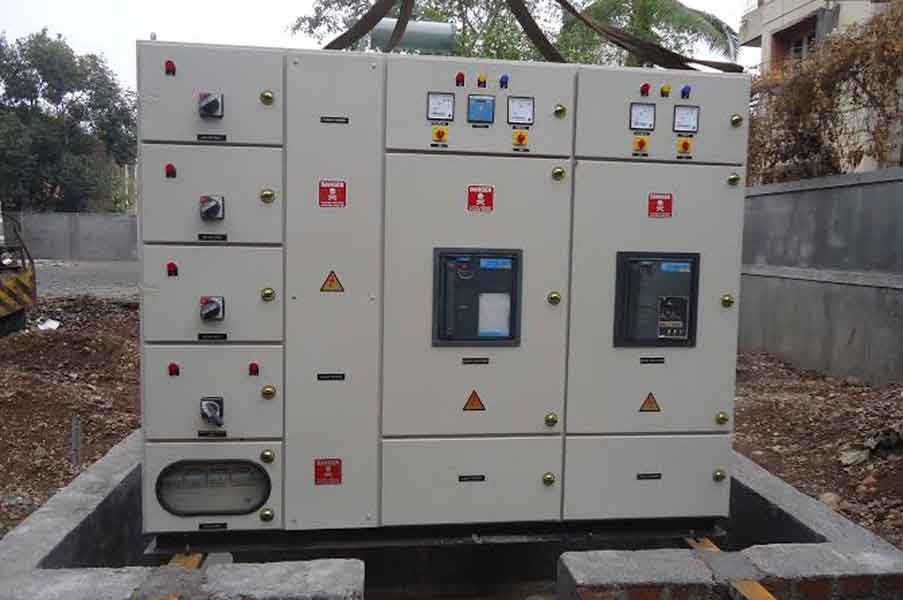Support Service
FMS
Facility Management Services
Managing facilities efficiently is critical to maintaining a safe, functional, and productive environment. Our facility management services are designed to meet the diverse needs of businesses, industries, and institutions, ensuring seamless operations while maximizing cost-efficiency.
Why Choose Us for FMS?
- Expert Team: A dedicated team with expertise across various facility management domains.
- Custom Solutions: Services tailored to meet the unique requirements of your organization.
- 24/7 Support: Round-the-clock assistance to ensure uninterrupted operations.
- Cost Efficiency: Optimized solutions that help reduce operational costs while enhancing productivity.
- Sustainability Focus: Green and eco-friendly practices integrated into our services.







WTP New Plant Erections & Maintenance
We provide end-to-end solutions for the erection of new Water Treatment Plants (WTPs) and ongoing maintenance services to ensure optimal performance. With a focus on efficiency, sustainability, and compliance, our services are designed to meet the water treatment needs of industries, municipalities, and commercial establishments.
Why Choose Us?
- Expertise in Water Solutions: Decades of experience in WTP construction and maintenance.
- Custom Designs: Tailored systems to meet your specific water treatment requirements.
- Advanced Technology: Implementation of the latest innovations in water treatment.
- Quality Assurance: Adherence to international standards for safety and performance.
- Sustainability Focus: Eco-friendly practices to minimize environmental impact.

We Offer Services for
New Plant Erections:
- Design & Engineering: Customized designs based on water treatment requirements and site conditions.
- Equipment Procurement: Sourcing high-quality materials and equipment for durability and efficiency.
- Construction & Installation: Precision assembly and installation of plant components.
- Testing & Commissioning: Ensuring the plant operates at peak performance before handover.
- Automation Systems: Integration of advanced control systems for seamless operation.
Maintenance Services:
- Preventive Maintenance: Regular inspections and servicing to prevent breakdowns.
- Repairs & Upgrades: Troubleshooting issues and upgrading components for enhanced performance.
- System Optimization: Fine-tuning processes to improve efficiency and reduce operational costs.
- Chemical Management: Monitoring and replenishing treatment chemicals for optimal water quality.
- Emergency Support: Rapid response services to address unexpected issues and minimize downtime.
STP New Plant Erections & Maintenance
We specialize in providing turnkey solutions for the erection of new Sewage Treatment Plants (STPs) and delivering reliable maintenance services. Our goal is to help businesses, municipalities, and industries effectively manage wastewater, ensuring environmental compliance and sustainable operations.
Why Choose Us?
- Expertise You Can Trust: Extensive experience in STP construction and maintenance across diverse sectors.
- Customized Solutions: Tailored designs to meet specific wastewater treatment requirements.
- Advanced Technology: Integration of state-of-the-art equipment and systems for optimal efficiency.
- Regulatory Compliance: Adherence to local and international environmental standards.
- Sustainability Focus: Solutions designed to minimize environmental impact and promote water reuse.

We Offer Services for
New Plant Erections:
- Design & Engineering: Custom plant designs based on flow rates, water characteristics, and reuse goals.
- Procurement & Installation: High-quality components and precise installation for reliable performance.
- Construction & Fabrication: Robust civil structures and mechanical systems tailored to site conditions.
- Testing & Commissioning: Comprehensive testing to ensure the plant operates at peak efficiency.
- Automation & Control: Advanced monitoring and control systems for streamlined operations.
Maintenance Services:
- Preventive Maintenance: Regular inspections to identify potential issues and prevent downtime.
- Repair & Upgrades: Troubleshooting, repairing, and upgrading plant components as needed.
- Performance Optimization: Fine-tuning processes to enhance efficiency and reduce costs.
- Sludge Management: Safe and efficient handling of sludge to meet environmental standards.
- Emergency Support: Rapid response services to address unexpected plant issues.
DG New Plant Erections & Maintenance
Diesel generators are reliable power sources that play a crucial role in various industries, construction sites, and emergency situations. To ensure their longevity and optimal performance, regular maintenance is essential. Proper maintenance not only enhances the generator’s efficiency but also reduces the risk of breakdowns and costly repairs. In this article, we will explore some key tips to help you maintain your diesel generator effectively.
Regular Oil Changes
Proper lubrication is essential for the smooth operation of the generator’s engine. Follow the manufacturer’s guidelines for oil change intervals and use the recommended oil type. Regular oil changes help remove contaminants and ensure that the engine components remain properly lubricated. Additionally, check the oil level frequently and top it up when necessary.
Battery Maintenance
Diesel generators rely on batteries for starting and control functions. Check the battery terminals for any signs of corrosion and clean them regularly. Ensure that the battery is securely fastened and the connections are tight. Test the battery’s voltage periodically and replace it if needed to avoid unexpected failures

We Offer Services for
By connecting the generator to a load bank, operators can subject the generator to a controlled and artificial load, which serves several important purposes in the maintenance process:
1. Testing and Validation: Load banks allow operators to test the generator under various load conditions to ensure it can handle its rated capacity and performance. This is especially important for newly installed generators or after significant repairs or upgrades.
2. Preventing “Wet Stacking”: Generators that run at low or no load for extended periods can develop a condition called “wet stacking,” where unburned fuel accumulates in the exhaust system. Load banks provide an artificial load, preventing this issue and promoting proper engine combustion.
3. Exercising the Generator: Regularly connecting the generator to a load bank exercises its components and keeps them in good working condition. This helps prevent issues related to prolonged inactivity and ensures the generator is ready for reliable operation during emergencies.
4. Detecting Issues and Faults: Load bank testing can reveal potential problems that may not be apparent during light-load or no-load operation. By stressing the generator with a controlled load, hidden issues, such as voltage irregularities, cooling problems, or malfunctioning components, can be identified and addressed proactively.
5. Fuel Efficiency Testing: Load bank tests can evaluate the fuel efficiency of the generator under different loads. This information can be valuable for optimizing fuel consumption and operational costs.
6. Compliance and Certification: Many industries, such as healthcare, data centers, and critical infrastructure, have regulations and standards that mandate load bank testing as part of their maintenance and compliance protocols.
7. Performance Benchmarking: Load bank testing allows comparisons between different generators, helping operators identify the most efficient and reliable units.
We are here to serve your Needs
With a strong commitment to safety, quality, and efficiency, we deliver facility management solutions that empower industries and healthcare providers. From initial design to final commissioning, we ensure a seamless experience that meets your operational needs.
Contact us today to discuss your FMS requirements and get started on your project!






Facility Management Services
Managing facilities efficiently is critical to maintaining a safe, functional, and productive environment. Our facility management services are designed to meet the diverse needs of businesses, industries, and institutions, ensuring seamless operations while maximizing cost-efficiency.
Why Choose Us for FMS?
- Expert Team: A dedicated team with expertise across various facility management domains.
- Custom Solutions: Services tailored to meet the unique requirements of your organization.
- 24/7 Support: Round-the-clock assistance to ensure uninterrupted operations.
- Cost Efficiency: Optimized solutions that help reduce operational costs while enhancing productivity.
- Sustainability Focus: Green and eco-friendly practices integrated into our services.







WTP New Plant Erections & Maintenance
We provide end-to-end solutions for the erection of new Water Treatment Plants (WTPs) and ongoing maintenance services to ensure optimal performance. With a focus on efficiency, sustainability, and compliance, our services are designed to meet the water treatment needs of industries, municipalities, and commercial establishments.
Why Choose Us?
- Expertise in Water Solutions: Decades of experience in WTP construction and maintenance.
- Custom Designs: Tailored systems to meet your specific water treatment requirements.
- Advanced Technology: Implementation of the latest innovations in water treatment.
- Quality Assurance: Adherence to international standards for safety and performance.
- Sustainability Focus: Eco-friendly practices to minimize environmental impact.

We Offer Services for
New Plant Erections:
- Design & Engineering: Customized designs based on water treatment requirements and site conditions.
- Equipment Procurement: Sourcing high-quality materials and equipment for durability and efficiency.
- Construction & Installation: Precision assembly and installation of plant components.
- Testing & Commissioning: Ensuring the plant operates at peak performance before handover.
- Automation Systems: Integration of advanced control systems for seamless operation.
Maintenance Services:
- Preventive Maintenance: Regular inspections and servicing to prevent breakdowns.
- Repairs & Upgrades: Troubleshooting issues and upgrading components for enhanced performance.
- System Optimization: Fine-tuning processes to improve efficiency and reduce operational costs.
- Chemical Management: Monitoring and replenishing treatment chemicals for optimal water quality.
- Emergency Support: Rapid response services to address unexpected issues and minimize downtime.
STP New Plant Erections & Maintenance
We specialize in providing turnkey solutions for the erection of new Sewage Treatment Plants (STPs) and delivering reliable maintenance services. Our goal is to help businesses, municipalities, and industries effectively manage wastewater, ensuring environmental compliance and sustainable operations.
Why Choose Us?
- Expertise You Can Trust: Extensive experience in STP construction and maintenance across diverse sectors.
- Customized Solutions: Tailored designs to meet specific wastewater treatment requirements.
- Advanced Technology: Integration of state-of-the-art equipment and systems for optimal efficiency.
- Regulatory Compliance: Adherence to local and international environmental standards.
- Sustainability Focus: Solutions designed to minimize environmental impact and promote water reuse.

We Offer Services for
New Plant Erections:
- Design & Engineering: Custom plant designs based on flow rates, water characteristics, and reuse goals.
- Procurement & Installation: High-quality components and precise installation for reliable performance.
- Construction & Fabrication: Robust civil structures and mechanical systems tailored to site conditions.
- Testing & Commissioning: Comprehensive testing to ensure the plant operates at peak efficiency.
- Automation & Control: Advanced monitoring and control systems for streamlined operations.
Maintenance Services:
- Preventive Maintenance: Regular inspections to identify potential issues and prevent downtime.
- Repair & Upgrades: Troubleshooting, repairing, and upgrading plant components as needed.
- Performance Optimization: Fine-tuning processes to enhance efficiency and reduce costs.
- Sludge Management: Safe and efficient handling of sludge to meet environmental standards.
- Emergency Support: Rapid response services to address unexpected plant issues.
DG New Plant Erections & Maintenance
Diesel generators are reliable power sources that play a crucial role in various industries, construction sites, and emergency situations. To ensure their longevity and optimal performance, regular maintenance is essential. Proper maintenance not only enhances the generator’s efficiency but also reduces the risk of breakdowns and costly repairs. In this article, we will explore some key tips to help you maintain your diesel generator effectively.
Regular Oil Changes
Proper lubrication is essential for the smooth operation of the generator’s engine. Follow the manufacturer’s guidelines for oil change intervals and use the recommended oil type. Regular oil changes help remove contaminants and ensure that the engine components remain properly lubricated. Additionally, check the oil level frequently and top it up when necessary.
Battery Maintenance
Diesel generators rely on batteries for starting and control functions. Check the battery terminals for any signs of corrosion and clean them regularly. Ensure that the battery is securely fastened and the connections are tight. Test the battery’s voltage periodically and replace it if needed to avoid unexpected failures

We Offer Services for
By connecting the generator to a load bank, operators can subject the generator to a controlled and artificial load, which serves several important purposes in the maintenance process:
1. Testing and Validation: Load banks allow operators to test the generator under various load conditions to ensure it can handle its rated capacity and performance. This is especially important for newly installed generators or after significant repairs or upgrades.
2. Preventing “Wet Stacking”: Generators that run at low or no load for extended periods can develop a condition called “wet stacking,” where unburned fuel accumulates in the exhaust system. Load banks provide an artificial load, preventing this issue and promoting proper engine combustion.
3. Exercising the Generator: Regularly connecting the generator to a load bank exercises its components and keeps them in good working condition. This helps prevent issues related to prolonged inactivity and ensures the generator is ready for reliable operation during emergencies.
4. Detecting Issues and Faults: Load bank testing can reveal potential problems that may not be apparent during light-load or no-load operation. By stressing the generator with a controlled load, hidden issues, such as voltage irregularities, cooling problems, or malfunctioning components, can be identified and addressed proactively.
5. Fuel Efficiency Testing: Load bank tests can evaluate the fuel efficiency of the generator under different loads. This information can be valuable for optimizing fuel consumption and operational costs.
6. Compliance and Certification: Many industries, such as healthcare, data centers, and critical infrastructure, have regulations and standards that mandate load bank testing as part of their maintenance and compliance protocols.
7. Performance Benchmarking: Load bank testing allows comparisons between different generators, helping operators identify the most efficient and reliable units.
We are here to serve your Needs
With a strong commitment to safety, quality, and efficiency, we deliver facility management solutions that empower industries and healthcare providers. From initial design to final commissioning, we ensure a seamless experience that meets your operational needs.
Contact us today to discuss your FMS requirements and get started on your project!






